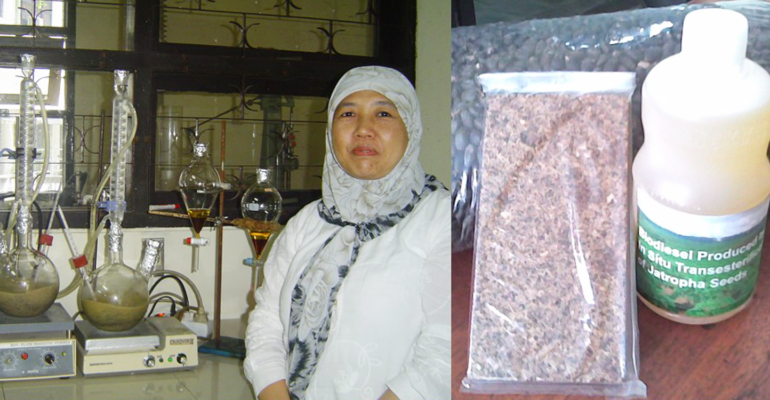IPB University Expert: Need to Develop Transformation Technology for Vegetable Oil-Based Agricultural Commodities

Prof Ika Amalia Kartika, Permanent Professor at the Faculty of Agricultural Technology, IPB University, explained that it is necessary to develop transformation technology in vegetable oil-based agricultural commodities. She said this because the potential of vegetable oil in Indonesia is still very large.
Prof Ika Amalia explained, based on data from The United States Department of Agriculture (USDA), Indonesia is the largest producer of vegetable oil in the world with a total production of 47 million tonnes in the 2023/2024 period. The vegetable oil produced by Indonesia mainly comes from the fruit of oil palm.
In addition to oil palm, other plants that also have great potential as a source of vegetable oil in Indonesia include jatropha and nyamplung. Jatropha curcas seed oil content reaches 30-40 per cent and nyamplung seed oil reaches 50-75 per cent. The annual seed productivity is 5 tonnes per hectare and 20 tonnes per hectare, respectively.
“From this abundant potential, we still need to optimise the potential and transformation of our vegetable oils,” said Prof Ika Amalia.
The IPB University lecturer explained that at least three transformations of vegetable oil-based technology are needed in Indonesia. The technological transformation includes the development of extraction methods, the development of single and twin screw forgers, and the development of extraction technology with binary solvents.
Prof Ika Amalia explained that sustainability and process efficiency are the main focus in efforts to improve vegetable oil extraction technology. She pointed out that the use of single and twin threaded forge extraction technology for castor beans and nyamplung can increase oil yield and quality as well as more efficient energy use.
“Development in the aspect of using fresh raw materials, this technology is able to produce premium quality oil, this oil is suitable for use as a cosmetic ingredient because it is rich in bioactive compounds and antibacterial activity against Propionibacterium acnes that causes acne,” said Prof Ika Amalia, IPB University lecturer from the Department of Agricultural Industrial Technology.
Another technology, said Prof Ika Amalia, is vegetable oil extraction with binary solvents (a mixture of polar and non-polar solvents). This technology can be used to extract oil and resin simultaneously in one time and one stage so that the extraction process becomes more compact, effective and efficient.
“In the case of transforming nyamplung fruit into high value-added products, the technology developed is extraction using a mixture of hexane and alcohol solvents. The hexane solvent serves to extract the oil, while alcohol serves to extract the resin,” said Prof Ika Amalia.
She said, with this technology, oil yield and quality can be increased, and resins that are rich in bioactive compounds can be separated easily from oil. Thus, the oil produced can be free from resin and can be consumed after going through a purification process, in addition to its utilisation for non-food purposes. On the other hand, the resin produced can be used for non-food purposes, such as for varnish, pharmaceutical raw materials and cosmetics.
With this research conducted by Prof Ika Amalia, she and her team received an award from the President of the Republic of France in 2018 in the Make Our Planet Great Again programme. The award is a prestigious scientific competition for academics and researchers around the world. (IAAS/RUM)



